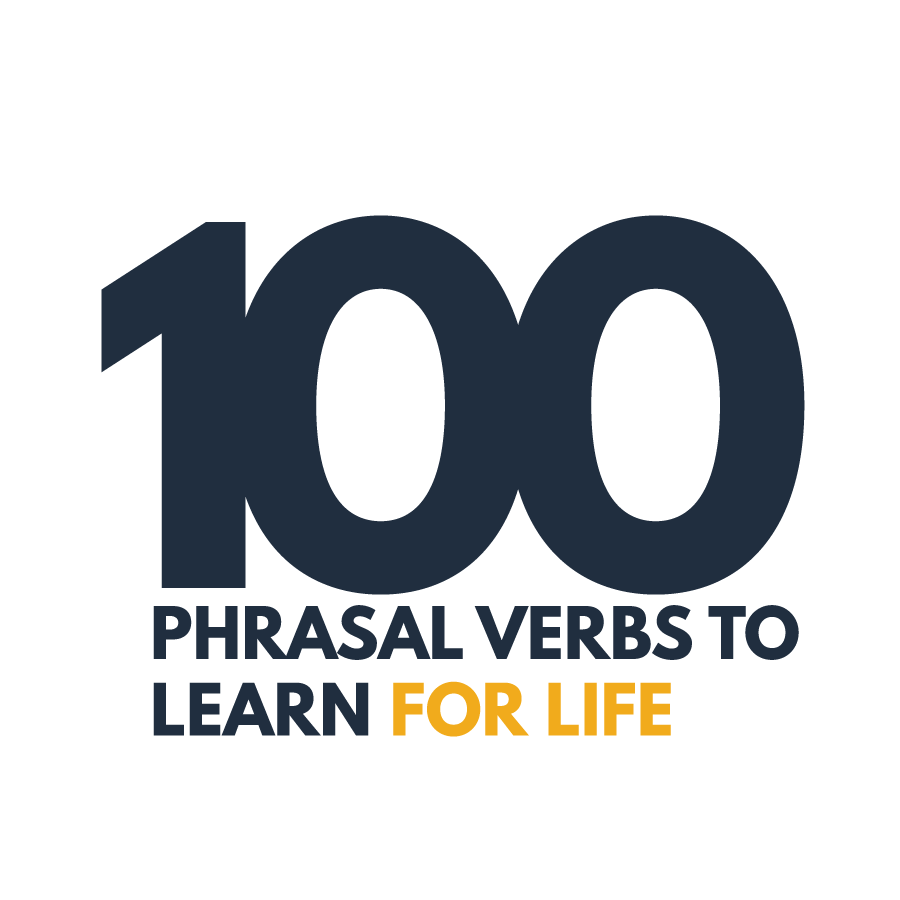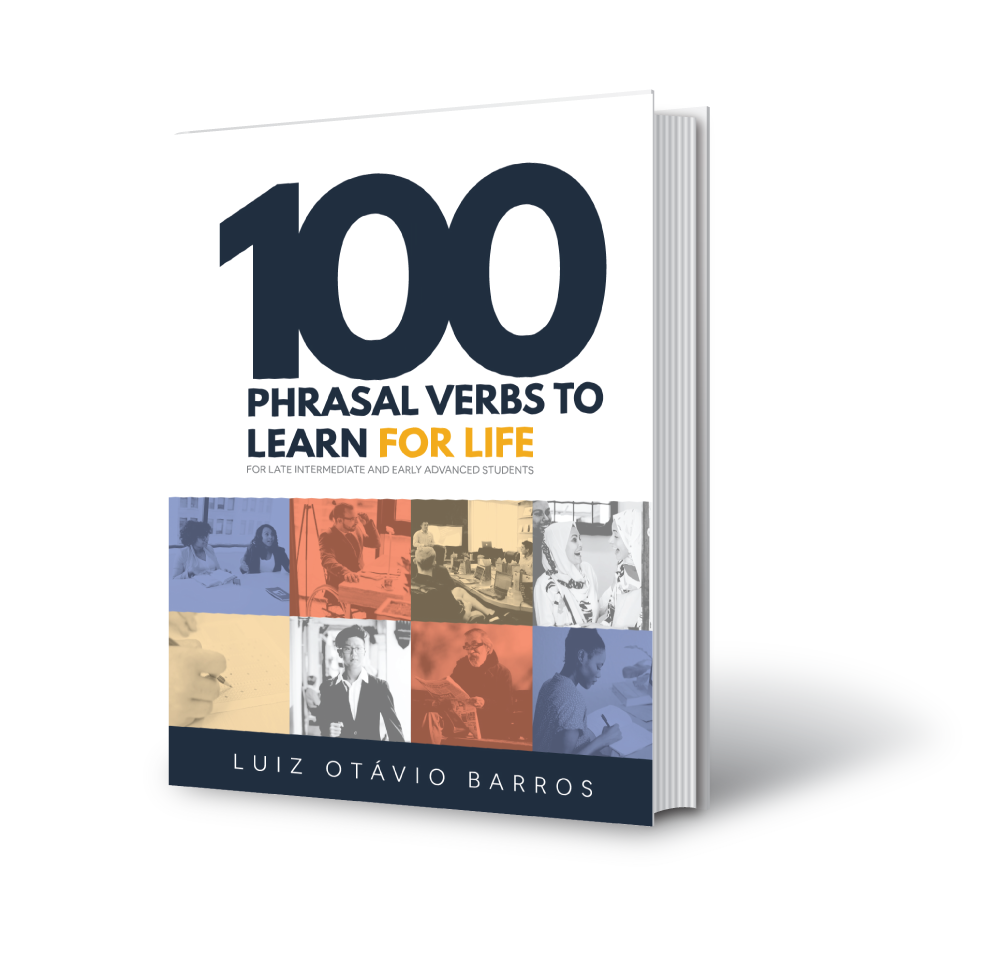
“This is the best book on phrasal verbs for learners of English at B2-C1 level I have ever seen.”
Higor Cavalcante, BRAZ-TESOL’S former president
100 Phrasal Verbs to Learn for Life, written by best-selling author Luiz Otávio Barros, offers a fresh approach to helping B2, C1, TOEFL/IELTS, and Cambridge First/Advanced students learn phrasal verbs more effectively. Here’s what makes the book unique:
- Instead of teaching hundreds of low-frequency phrasal verbs, we focus on 100 really common ones and teach them really well.
- The phrasal verbs are grouped by topic so you can remember them more easily.
- Each phrasal verb is supported by an average of 15 examples so you can really understand it.
- All of the 1,500 example sentences were adapted from authentic sources (newspapers, blogs, TV shows, etc.) so you can learn how each phrasal verb is used in the real world.
- The number of meanings per lesson is limited so you don’t get confused.
- 100 Phrasal Verbs to Learn for Life is light on terminology so you don’t get distracted by terms like “type 1” or “separable/inseparable.”
Phrasal verbs can be easier to learn than you think, especially at this level, and this book is a step in the right direction.
Would you like to try an interactive version of the exercises in the book?
Hit the subscribe button below, and you’ll get 10 sample lessons – free of charge!
We promise we won’t spam you! 😀

If you’re an intermediate or advanced student of English as a foreign or second language, and you sometimes feel like giving up on phrasal verbs, don’t! Not yet!
Check out 100 Phrasal Verbs to Learn for Life, by best-selling author Luiz Otávio Barros, who’s also written The Only Academic Phrasebook You’ll Ever Need, now a classic with nearly 30,000 copies sold to date.
Here’s what makes 100 Phrasal Verbs to Learn for Life unique:
- Over 1,000 natural-sounding examples adapted from newspapers, magazines, novels, blogs, and TV shows.
- Clear explanations, with jargon and grammar terminology kept to a minimum
- Verbs selected based on frequency and usefulness